PCOS, or polycystic ovarian syndrome, is a very common endocrine disorder. However, many women affected remain undiagnosed and do not know how to effectively manage their condition. So I am here to give you some information about PCOS and exercise to help you better understand how to effectively manage your condition and reduce your symptoms. You may even have a friend or family member struggling with PCOS who needs this advice, so help them out and pass this information onto them! First up, the basics of PCOS.
the basics of PCOS and its underlying factors:
- PCOS is typically associated with increased testosterone (male sex hormone) production and insulin resistance.
- Insulin resistance means your body’s ability to use insulin for its proper function is inhibited, i.e. you are resistant to insulin.
- Note: insulin = a hormone released by the pancreas that helps move glucose from your bloodstream into your liver, fat mass and muscles – which is a good thing when working as it should.
- This insulin resistance leads to your body producing more insulin than normal (also known as hyperinsulinemia) to maintain stable and normal blood sugar levels.
- In addition, this excess testosterone affects your body by causing many of the side effects associated with PCOS, including: preventing ovulation, irregular or absent periods, excess face and body hair and skin changes.
If you have PCOS (or know someone who does) you may experience, or be susceptible to, some of the following symptoms:
- Weight gain
- Irregular or absent periods
- Skin changes (acne or darkened patches)
- Excessive face and body hair growth (hirsutism)
- Reduced head hair (alopecia)
- Depression and/or anxiety
- Reduced self-esteem and body image
- Pain
- Incontinence
- Abnormal eating patterns or eating disorders
- Higher blood sugar levels
But, the catch is that PCOS is associated with quite a vicious cycle (pictured below). Where increased weight cycles back and exacerbates the insulin resistance. Then increased insulin resistance in turn increases insulin production. Then the increased insulin production cycles back and further exacerbates the increased testosterone production. This all has an effect on the body and causes the aforementioned side effects.
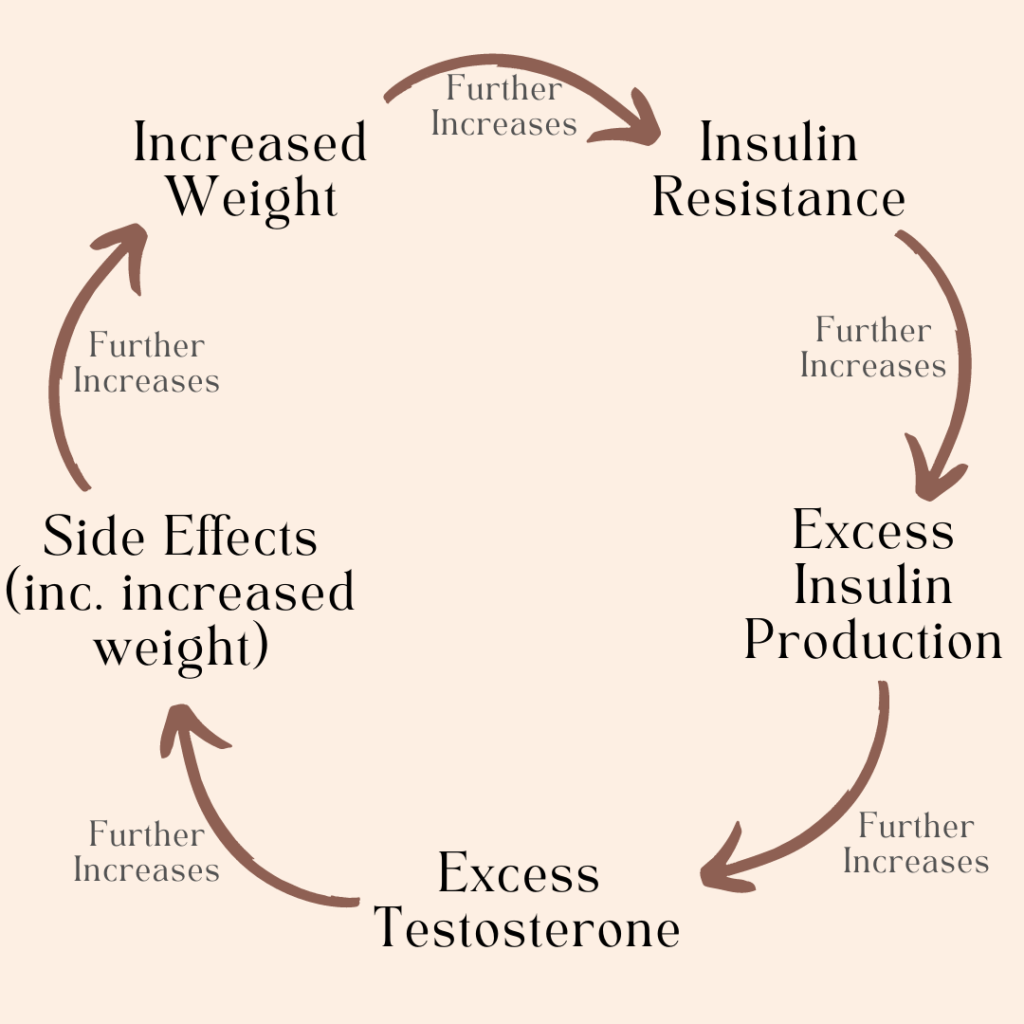
I know all of this sounds terrible. But there are ways to manage PCOS and improve the associated signs and symptoms.
Management of PCOS:
Exercise is one of the first line treatment options for PCOS, along with diet and weight management. Because there is strong evidence to show lifestyle changes effectively manage PCOS and help reduce symptom severity. In particular, only 5-10% weight loss (in overweight and obese individuals) is needed to help reduce PCOS symptoms – which can be done through diet and exercise. While medications are only used in-conjunction if really needed.
Additionally, changing your lifestyle through a well-balanced healthy diet and regular exercise can also manage some serious longer-term consequences of PCOS. Which we want to prevent at all costs. Due to the underlying insulin resistance associated with PCOS, you may be at an increased risk of Type 2 Diabetes, Metabolic Syndrome, Obesity, Cardiovascular Disease and/or infertility issues.
How exercise can improve PCOS:
- Reduced insulin resistance (i.e. increases your bodies sensitivity to insulin so you’re able to use it more effectively), meaning that you can control your blood sugar levels better.
- Improved imbalances of excess testosterone (hyperandrogenism – increased androgens (i.e. testosterone)).
- Improved body composition and weight management (which in turn reduces excess testosterone and improves insulin resistance, remember that vicious cycle mentioned above!).
These changes then in turn can cause improvements in PCOS-related symptoms and side effects, including improved:
- Chances of fertility and successful IVF
- Menstrual cycle regularity and ovulation
- Mood, energy, motivation and self-confidence
- Body composition and weight management
- Psychological wellbeing (depression, anxiety and associated symptoms)
- Emotional wellbeing
- Improved health-related quality of life
- Pain
- Fitness, strength and muscular endurance
Additionally, exercise will also improve longer-term risks associated with PCOS (if it is not well managed), including reduced risk of:
- Type 2 Diabetes
- Cardiovascular Disease
- Metabolic Syndrome
- Obesity
- Infertility issues
As indicated, there are so many PCOS-specific benefits from exercise. Hence why it is such an important factor in your management of PCOS. So now you know why you should be exercising with PCOS, head {here} for details and guidance on what exercise you should be doing with PCOS. Otherwise come and see one of our Exercise Physiologists here at iNform Health & Fitness for a more individualised approach → https://informhealth.com/
Hopefully this information has helped you better understand PCOS and exercise and how to better manage your condition.
Stay active!
Kara, AEP, AES, ESSAM, BClinExPhys(Hons)
Would you like to re-assess your health behaviours and identify what you need to work toward over the coming year?
Our scorecard is a quick and simple questionnaire to help you do this.
Take The Scorecard Here
It’s free and only takes 7 minutes
References:
https://www.mdpi.com/2411-5142/5/2/35
https://pubmed.ncbi.nlm.nih.gov/32342454/
https://academic.oup.com/humrep/article-abstract/37/5/1018/6552984
https://bmcendocrdisord.biomedcentral.com/articles/10.1186/s12902-019-0434-8
https://medicalrepublic.com.au/nutrition-lifestyle-recommendations-pcos/16888
https://bmcpublichealth.biomedcentral.com/articles/10.1186/s12889-021-12280-9
https://www.ncbi.nlm.nih.gov/pmc/articles/PMC8439708/
https://medicalrepublic.com.au/nutrition-lifestyle-recommendations-pcos/16888
https://www.sciencedirect.com/science/article/abs/pii/S0009898119321187
http://exerciseismedicine.com.au/wp-content/uploads/2020/10/EIM-fact-sheet_PCOS_Professional.pdf


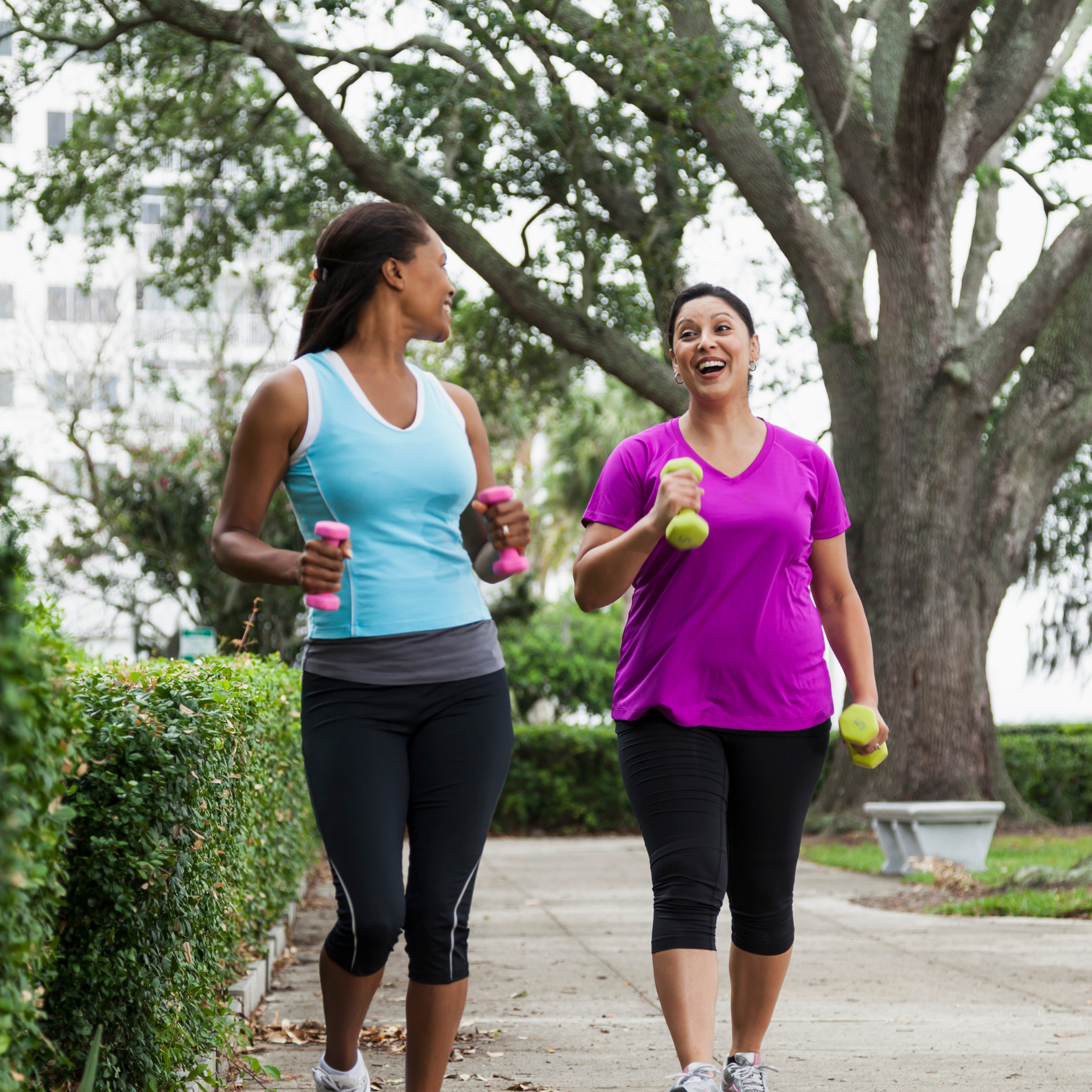

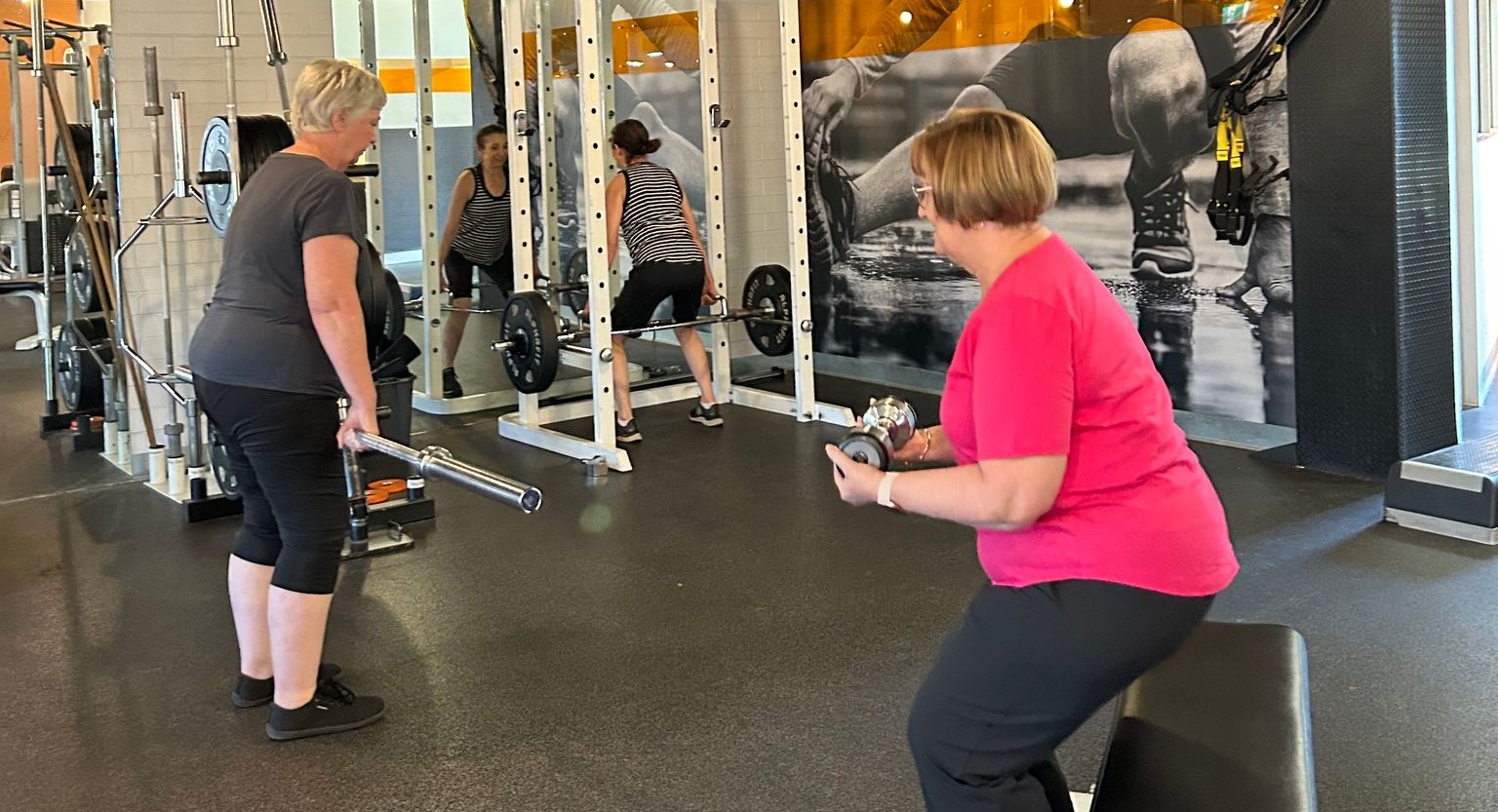



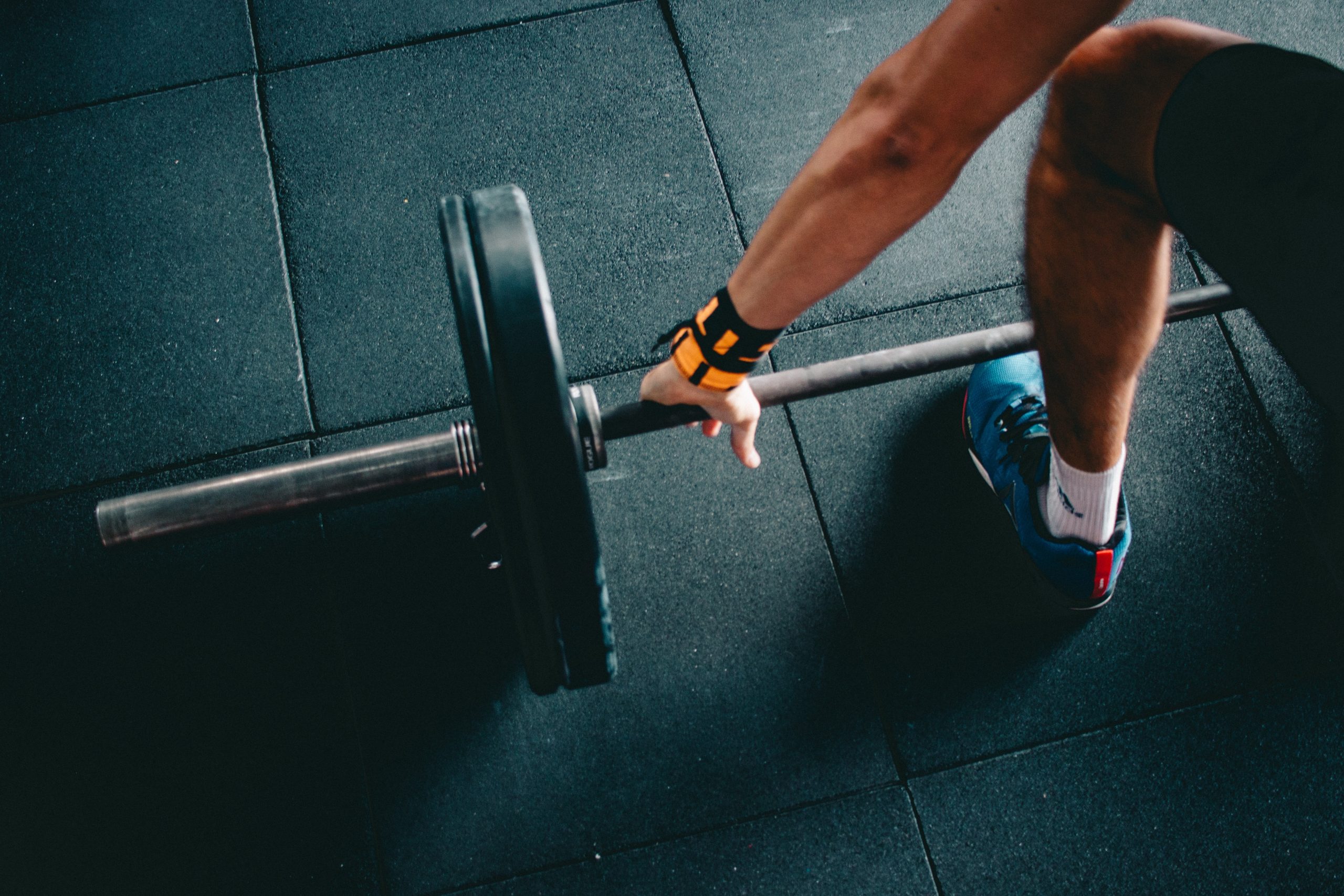
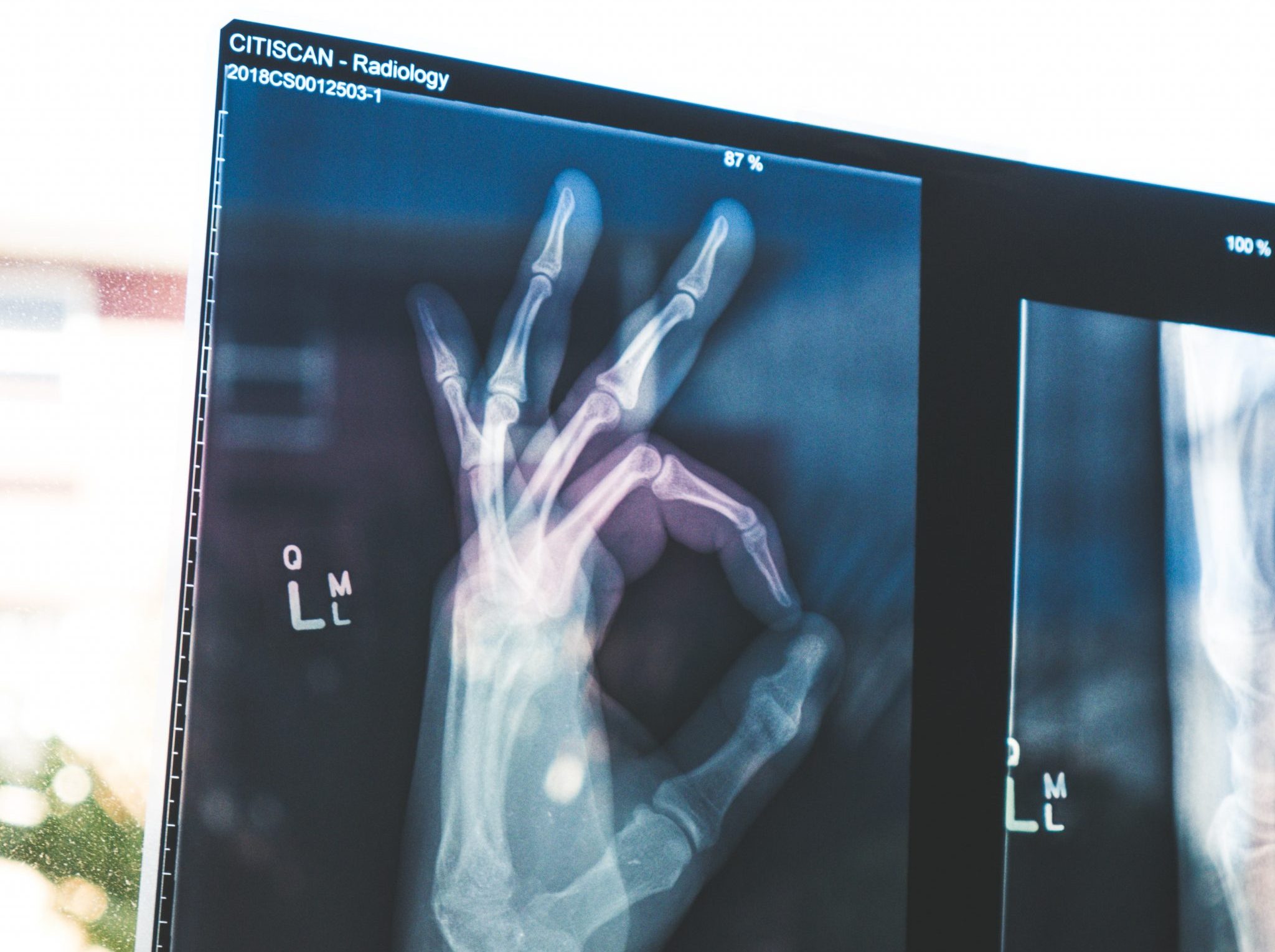




0 Comments